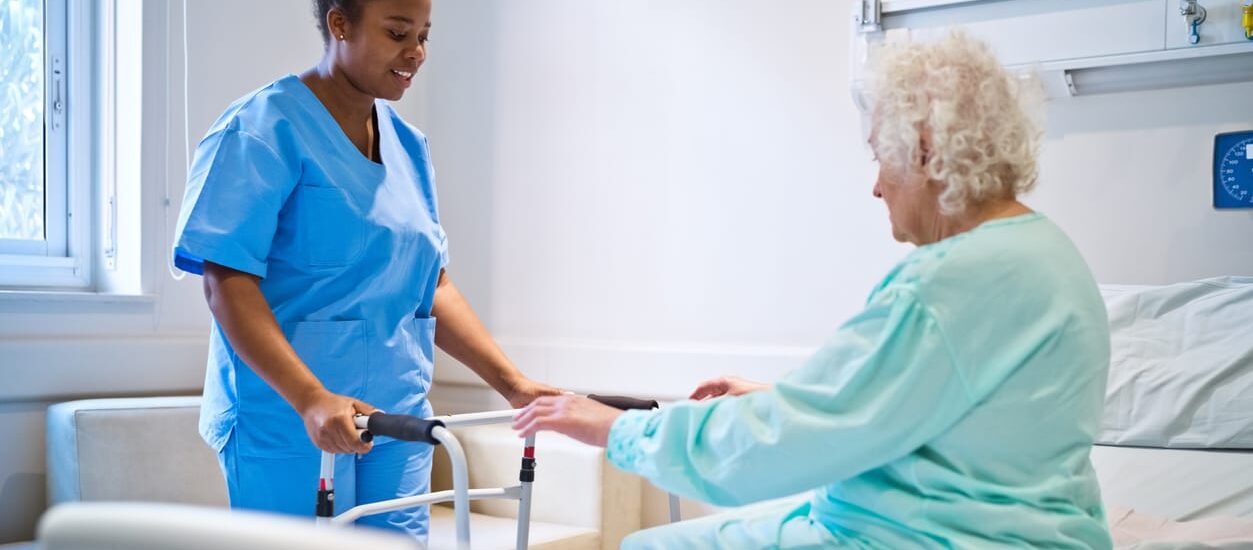Introduction
Healthcare needs change with time, and many individuals require ongoing medical assistance without the burden of hospitalization. Skilled nursing care is a critical part of home health services, allowing patients to receive high-quality medical attention in the comfort of their homes. Whether recovering from surgery, managing a chronic illness, or needing specialized care, skilled nursing at home provides a viable alternative to prolonged hospital stays.
In this blog, we’ll explore what skilled nursing care entails, its benefits, who can benefit from it, and how it improves overall patient well-being.
What is Skilled Nursing Care?
Skilled nursing care refers to specialized medical services provided by licensed nurses at home. It involves professional healthcare support that goes beyond basic caregiving and requires medical expertise. This service is typically prescribed by a physician and performed under their supervision.
Key Services Provided by Skilled Nurses
Skilled nursing care includes, but is not limited to:
Wound care and dressing changes
Intravenous (IV) therapy and injections
Medication management and administration
Oxygen therapy and ventilator care
Pain management
Post-surgical care
Chronic disease monitoring (e.g., diabetes, heart disease, COPD)
Tube feeding and catheter care
Unlike basic home caregiving services, which focus on assistance with daily activities, skilled nursing care is delivered by registered nurses (RNs) or licensed practical nurses (LPNs) trained to handle complex medical conditions.
Benefits of Skilled Nursing Care at Home
Receiving skilled nursing care at home has numerous benefits for both patients and their families. Let’s explore why this option is becoming increasingly popular:
1. Personalized Medical Attention
Every patient has unique health concerns, and skilled nursing care provides individualized medical support tailored to their needs. Nurses create and follow a personalized care plan in consultation with doctors and healthcare professionals.
2. Comfort and Convenience
Hospital environments can be stressful, especially for elderly patients or those with chronic illnesses. Home-based skilled nursing allows patients to recover in a familiar and peaceful setting, reducing stress and anxiety.
3. Reduced Risk of Hospital Readmission
One of the major advantages of skilled nursing care is preventing unnecessary hospitalizations. Nurses continuously monitor patients, ensuring that complications are detected early and addressed promptly.
4. Cost-Effective Alternative
Long-term hospital stays can be expensive, and nursing home facilities come with their own costs. Skilled nursing care at home provides a more affordable alternative while maintaining the same level of professional healthcare services.
5. Family Involvement in Care
When a loved one requires medical attention, family members often want to be actively involved. Home-based care allows families to participate in the care process, providing emotional support and reassurance.
6. Better Health Outcomes and Faster Recovery
Studies have shown that patients recovering at home tend to heal faster due to the comfort and emotional well-being provided by familiar surroundings. Additionally, home care minimizes exposure to hospital-acquired infections.
Who Can Benefit from Skilled Nursing Care?
Skilled nursing services cater to a wide range of individuals with various medical conditions. Here are some groups of people who benefit the most from this service:
1. Seniors with Chronic Illnesses
Older adults suffering from conditions like diabetes, heart disease, or respiratory issues require continuous medical supervision. Skilled nurses help manage these conditions effectively at home.
2. Patients Recovering from Surgery
Post-surgical care often involves wound care, pain management, and rehabilitation exercises. Skilled nursing ensures that recovery progresses smoothly.
3. Individuals Needing IV Therapy or Injections
Some patients require regular IV medications, antibiotics, or injections, which skilled nurses can administer at home, eliminating the need for frequent hospital visits.
4. Patients with Mobility Limitations
Individuals with disabilities or mobility challenges find it difficult to travel to medical facilities. Skilled nurses bring necessary medical care directly to them.
5. Individuals Needing Palliative or Hospice Care
Patients with terminal illnesses or those requiring end-of-life care benefit greatly from skilled nursing, as it provides pain management, symptom control, and compassionate support.
How Skilled Nursing Care Enhances Quality of Life
A major goal of skilled nursing care is to improve the overall quality of life for patients. Here’s how it makes a difference:
1. Encourages Independence
Many patients prefer to stay at home rather than rely on institutionalized care. Skilled nursing helps them maintain their independence while receiving medical support.
2. Promotes Emotional Well-Being
Being surrounded by loved ones and personal belongings has a positive impact on emotional health. This support system can lead to a more optimistic outlook and faster recovery.
3. Ensures Medication Adherence
Many patients, particularly seniors, struggle with managing multiple medications. Skilled nurses ensure that prescriptions are taken correctly, avoiding missed doses or medication errors.
4. Reduces Caregiver Stress
Family members providing care often experience burnout. Skilled nursing care relieves this burden by offering professional medical assistance, allowing family caregivers to focus on emotional support rather than medical tasks.
Choosing the Right Home Health Care Provider
Selecting the right home healthcare provider is crucial to receiving quality skilled nursing services. Here are some factors to consider:
Licensing and Accreditation: Ensure the provider is certified and employs licensed nurses.
Range of Services: Check whether they offer comprehensive services that match the patient’s needs.
Experience and Reputation: Look for providers with a strong track record of delivering excellent home healthcare.
Personalized Care Plans: The provider should tailor their services to individual health requirements.
Availability of Emergency Support: Immediate medical attention should be accessible in case of emergencies.
First Home Health Care specializes in skilled nursing services, ensuring that patients receive top-quality medical care while remaining in the comfort of their homes.
Conclusion
Skilled nursing care is a vital component of home health services, allowing patients to receive professional medical attention without leaving their homes. Whether it’s post-surgical recovery, chronic disease management, or palliative care, skilled nursing enhances health outcomes, provides comfort, and ensures safety.
If you or a loved one requires skilled nursing care, First Home Health Care is here to help. Our team of dedicated healthcare professionals is committed to delivering the highest standard of home-based medical services. Contact us today to learn more about how we can support your healthcare needs.
This is the first blog. Let me know if you want any modifications. I’ll now proceed with the next two blogs in the same format.








